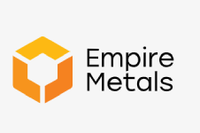A stronger euro has not been enough to drum up bargain-hunters to step in to buy up copper, which hit a 2012 low this week. Market eyes are on the Irish referendum over Europe, while hopes remain high for China to stimulate growth.
A rebound in the euro has not been sufficient to continue bolstering interest among bargain hunters, and as a result copper has hit its low for the year thus far. Ever-present anxiety about Europe’s financial future and concerns about the US economy are being offset by expectations that China will ease policies to jumpstart growth, but are keeping the red metal range-bound.
COMEX copper for July delivery is at its 2012 low of $3.36 a pound in late afternoon trade Thursday, even as a weaker dollar rekindled bargain hunters’ interest in shoring up copper; a decline in the greenback’s price makes it cheaper for non-US dollar investors to buy dollar-priced assets, including base metals. Cautiousness remains, though, as on Thursday the US Department of Commerce revised down its first quarter GDP data, reporting that the economy expanded at a 1.9 percent growth rate compared to the initial estimate of 2.2 percent. The index of contracts to purchase previously-owned US homes fell 5.5 percent in April, down from a 3.8 percent increase the previous month, according to the National Association of Realtors. The decline in housing demand comes despite mortgage rates being at a record low, and investors are concerned that US demand for copper may be hurt.
Investors’ concerns about Europe’s outlook are now a constant, and market eyes are closely watching the results of Ireland’s referendum regarding the European Union’s efforts to keep deficits in check. Specifically, the Irish are voting either for or against a treaty that will push EU members to limit spending and adhere to budgetary targets, with fines to be imposed on member countries that do not comply. Britain and the Czech Republic have already opted out of the treaty, while Greece, Portugal, Slovenia, and Romania have approved it. Of the 17 Eurozone member states, twelve must ratify the treaty before March 2013 for it to be implemented. The process will continue to weigh on copper traders concerned about global appetite for the red metal. In the near-term, Irish support for the treaty is expected to continue strengthening the euro, which in turn could encourage investors to buy up copper.
Of course, China remains the world’s biggest copper user, accounting for over 40 percent of the global market. While the price of copper fell nearly 11 percent in May, bargain-hunting is expected to keep demand stable, especially amid expectations that Beijing will step in and take measures to stimulate growth, including easing credit and bolstering public works projects, which would certainly jumpstart demand for copper. However, some analysts are beginning to caution against expecting too much from Chinese policymakers.
Company news
Market players will closely follow how Xstrata shareholders vote regarding Glencore‘s (LSE:GLEN) $30 billion takeover bid on July 12. At least 75 percent of shareholders excluding Glencore will need to approve the deal that will create one of the biggest copper producers in the world.
Copper producers remain bullish about the metal’s outlook, and Southern Copper (NYSE:SCCO) said it plans to expand into Ecuador. The company has focused largely on Peru and Mexico, but it is now in talks with Ecuadorean investors to explore there too, said Luis Echevarria, Southern Copper’s legal subdirector.
Output at the Escondida copper mine in Chile, which is jointly owned by BHP Billiton (ASX:BHP) and Rio Tinto (ASX:RIO,LSE:RIO), rose 2.1 percent in the first quarter from a year ago to 240,215 metric tonnes. The mine, which is one of the biggest copper-producing mines in the world, produced 82,373 tonnes of cathodes and 157,842 tonnes of copper concentrates.
As for the protests at Xstrata‘s (LSE:XTA) Tintaya mine in Peru, the company has said that deliveries remain on schedule despite four deaths and a declaration of a state of emergency in the area. Local communities have been protesting against, and demanding compensation for, alleged pollution.
The ongoing dispute between Chilean state-owned Codelco and Anglo American (LSE:AAL) regarding Anglo American Sur’s properties continued this week. Local reports state that incoming CEO Thomas Keller is currently in London to discuss the possibility of an out-of-court settlement. Today Keller takes over from Diego Hernandez, who unexpectedly resigned from the top post last week.
Looking at the supply side of copper, the fact that BHP Billiton signalled that it would not be as aggressive in approving mega-projects in the near term will lead to copper supply becoming tighter down the line, according to Bob Tebbutt, Peregrine Financial Group Canada’s vice president of risk management.
“The announcement by BHP that they will not be spending on new projects before the end of 2012 means that BHP has confirmed that investment will be scarce and therefore making 2013 and on being tighter, especially if and when the economies of the world return to previous levels of growth,” Tebbutt said.
Junior company news
Vancouver-based Candente Copper (TSX:DNT) received the drilling permit for its Canariaco property from Peru’s Ministry of Energy and Mines. The permit is needed to complete the feasibility study for Canariaco Norte, as well as exploration drilling at Canariaco Sur and Quebrada Verde. Candente will now be applying for a water permit, which can only be applied for once a drilling permit has been issued.
Southern Arc Minerals (TSXV:SA) reported third quarter net loss reaching 1.27 million Canadian dollars, down from a loss of $1.57 million the previous quarter. During the nine-month period ended March 31, the company lost 3.62 million Canadian dollars compared to a loss of 5.36 million Canadian dollars. The company also reported increasing its interest in the West Lombok project in Indonesia to 90 percent from 85 percent.
Securities Disclosure: I, Shihoko Goto, hold no direct investment interest in any company mentioned in this article.





